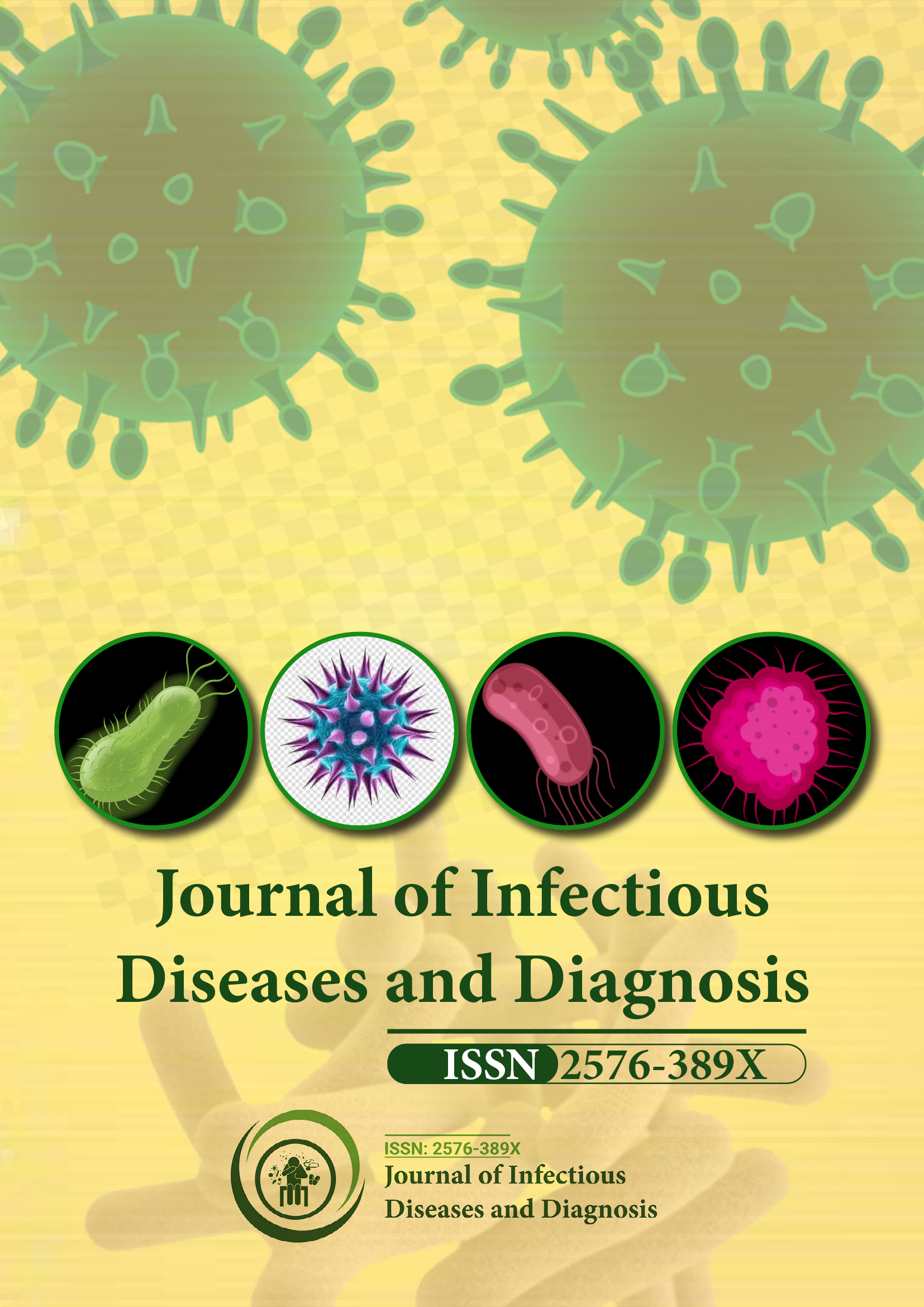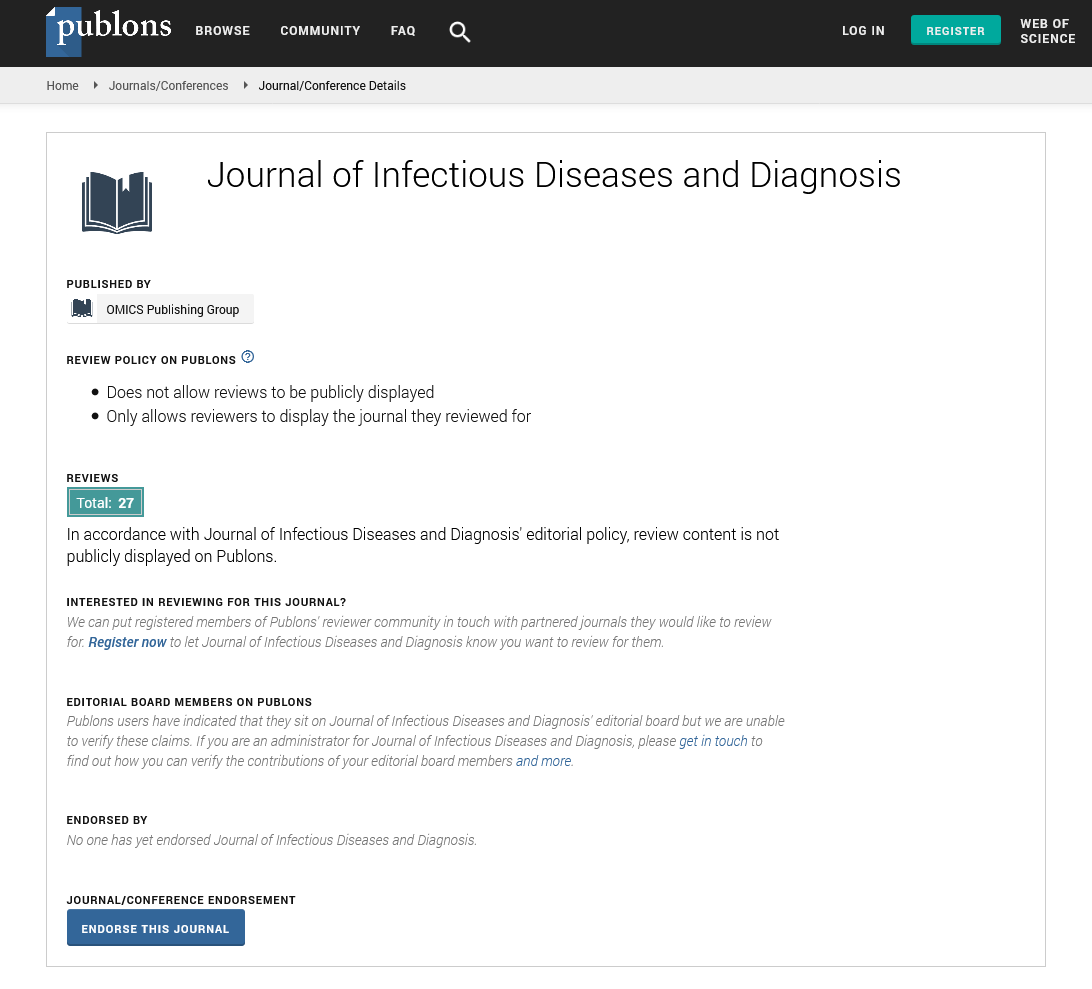Indexed In
- RefSeek
- Hamdard University
- EBSCO A-Z
- Publons
- Euro Pub
- Google Scholar
Useful Links
Share This Page
Journal Flyer

Open Access Journals
- Agri and Aquaculture
- Biochemistry
- Bioinformatics & Systems Biology
- Business & Management
- Chemistry
- Clinical Sciences
- Engineering
- Food & Nutrition
- General Science
- Genetics & Molecular Biology
- Immunology & Microbiology
- Medical Sciences
- Neuroscience & Psychology
- Nursing & Health Care
- Pharmaceutical Sciences
Perspective - (2023) Volume 8, Issue 2
Examining How E-Learning Enhances Clinical Microbiology and Infectious Diseases Education
Richard Lathe*Received: 01-Mar-2023, Manuscript No. JIDD-23-20787; Editor assigned: 03-Mar-2023, Pre QC No. JIDD-23-20787 (PQ); Reviewed: 17-Mar-2023, QC No. JIDD-23-20787; Revised: 24-Mar-2023, Manuscript No. JIDD-23-20787 (R); Published: 31-Mar-2023, DOI: 10.35248/2576-389X.23.08.206
About the Study
E-learning is a form of education that utilizes electronic technologies to deliver content and facilitate learning. It has become an increasingly popular way for healthcare professionals to stay up-to-date with the latest developments in clinical microbiology and infectious diseases. E-learning has many advantages, including the ability to learn at one's own pace, the ability to access materials from anywhere, and the ability to interact with other learners from around the world.
In clinical microbiology and infectious diseases, e-learning can be used to provide continuing education for healthcare professionals, to train new healthcare professionals, and to provide patients with educational materials about their health conditions. E-learning can take many forms, including online courses, webinars, podcasts, and virtual conferences.
Online courses are a popular form of e-learning in clinical microbiology and infectious diseases. These courses may be selfpaced or instructor-led, and may include a combination of written materials, videos, and interactive exercises. Online courses can be accessed from anywhere with an internet connection, making them a convenient way for healthcare professionals to continue their education while balancing other responsibilities.
Webinars are another popular form of e-learning in clinical microbiology and infectious diseases. Webinars are live presentations that are conducted over the internet, and may include interactive elements such as polls and Q and A sessions. Webinars are often recorded and made available for later viewing, making them a convenient way for healthcare professionals to access educational content at a time that is convenient for them.
Podcasts are another form of e-learning in clinical microbiology and infectious diseases. Podcasts are audio recordings that can be downloaded and listened to on a variety of devices. Podcasts can be a convenient way for healthcare professionals to stay up-todate with the latest developments in clinical microbiology and infectious diseases while on the go.
Virtual conferences are a newer form of e-learning in clinical microbiology and infectious diseases. Virtual conferences are similar to in-person conferences, but are conducted entirely online. Virtual conferences may include live presentations, prerecorded sessions, and interactive elements such as Q and A sessions and chat rooms. Virtual conferences can be a convenient way for healthcare professionals to access educational content from around the world without the need to travel.
E-learning in clinical microbiology and infectious diseases has many advantages over traditional classroom-based learning. One advantage is the ability to learn at one's own pace. With elearning, healthcare professionals can take as much time as they need to understand complex concepts, and can revisit materials as needed. This can be particularly useful for healthcare professionals who are balancing work and other responsibilities.
Another advantage of e-learning is the ability to access materials from anywhere. With e-learning, healthcare professionals can access educational materials from anywhere with an internet connection, whether that is at work, at home, or while traveling. This can be particularly useful for healthcare professionals who work in remote areas or who have limited access to traditional classroom-based learning opportunities.
E-learning also provides the ability to interact with other learners from around the world. This can be particularly useful for healthcare professionals who work in isolation, such as those in rural areas or in small practices. Through e-learning, healthcare professionals can connect with other learners from around the world, share experiences, and learn from one another.
Conclusion
In conclusion, e-learning is an important tool for healthcare professionals in clinical microbiology and infectious diseases. It provides a flexible, convenient, and cost-effective way for healthcare professionals to continue their education and stay upto- date with the latest developments in their field. As e-learning technologies continue to evolve, it is likely that e-learning will become an even more important tool for healthcare professionals in the years to come.
Citation: Lathe R (2023) Examining How E-Learning Enhances Clinical Microbiology and Infectious Diseases Education. J Infect Dis Diagn. 8:206.
Copyright: © 2023 Lathe R. This is an open-access article distributed under the terms of the Creative Commons Attribution License, which permits unrestricted use, distribution, and reproduction in any medium, provided the original author and source are credited.

